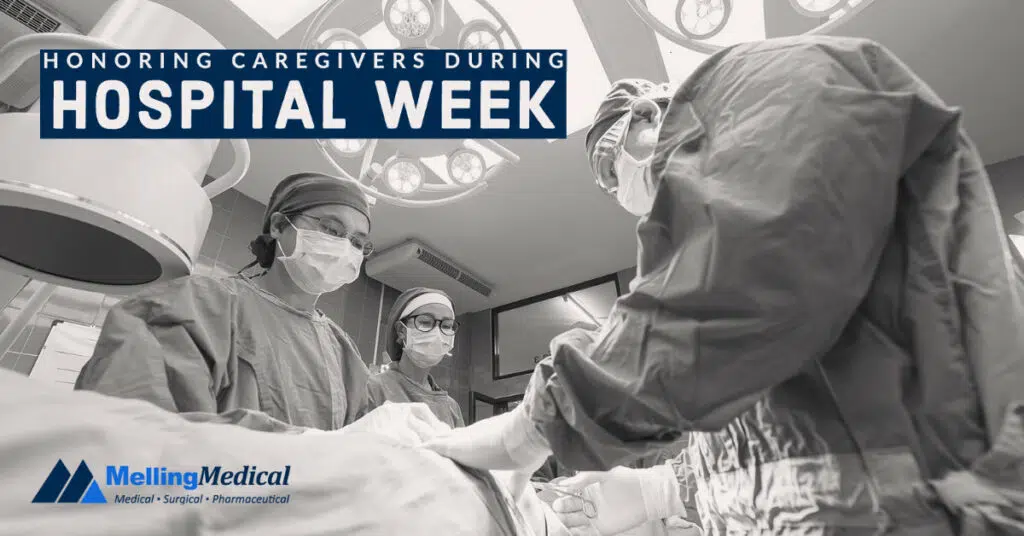Telescope Implant for End-Stage Macular Degeneration is FDA Approved and Available to Patients 65 Years and Older Who Have Not Had Cataract Surgery
SARATOGA, Calif.–(BUSINESS WIRE)–VisionCare, Inc. (“VisionCare”), a developer of advanced visual prosthetic devices for the treatment of age-related macular degeneration (AMD), today announced that MellingMedical will distribute the Implantable Miniature Telescope (by Dr. Isaac Lipshitz) to Department of Veteran’s Affairs hospitals, military hospitals, and other federal government healthcare facilities in the United States.
MellingMedical provides medical supplies, equipment, devices and pharmaceuticals to federal health facilities across the country under the VA’s “Veterans First” procurement program. The CVE-verified Service Disabled Veteran-Owned Small Business (SDVOSB) holds a Medical Equipment and Surgical Supply Schedule (Med/Surg), as well as a Pharmaceutical Schedule, enabling it to deliver timely innovation where it is needed most.
The telescope implant is part of the CentraSight® treatment program, which is for people 65 years and older diagnosed with end-stage, age-related macular degeneration who meet specific eye health and vision requirements, and for whom common treatments such as glasses, vitamins, drugs or cataract surgery will not lead to vision improvement. Per current labeling, the telescope implant is contraindicated in patients with previous intraocular or corneal surgery of any kind in the operative eye, including cataract surgery.
“We are excited to work directly with MellingMedical to offer the CentraSight treatment program to Americans who rely on the U.S. Department of Veteran’s Affairs and other federally run agencies for their health care needs,” stated Blake Michaels, President and CEO of VisionCare, Inc. “Now ophthalmologists working at these facilities across the country will be able to offer the telescope implant for their patients with the most severe form of AMD, which is proven to improve vision and quality of life.”
“The CentraSight treatment program is the latest example of our company’s commitment to serving America’s veterans through the Department of Veterans Affairs,” said Christopher Melling, CEO and founder, a Desert Storm Navy veteran. “Veterans gave their best when they served and they deserve the best care in return, including groundbreaking technology like this. We’re especially excited to add the telescope implant to our portfolio because of its potential life-changing impact on millions of older adults who live with diminished or blocked vision due to macular degeneration. It is a truly unique device.”
Macular Degeneration Affects Millions of Older Adults
Macular degeneration is the leading cause of permanent vision loss in Americans aged 60 and older, affecting an estimated 15 million people.i Of those, 2 million Americans are living with End-Stage AMDii and that number will increase as the Baby Boomer cohort ages. Advanced age-related macular degeneration cannot be corrected by any other treatment including glasses, vitamins, drugs or cataract surgery and is associated with increased stress and depression as vision diminishes.iii
About MellingMedical
About CentraSight and the Telescope Implant
The Implantable Miniature Telescope (by Dr. Isaac Lipshitz) is indicated for monocular implantation to improve vision in patients greater than or equal to 65 years of age with stable severe to profound vision impairment (best-corrected distance visual acuity 20/160 to 20/800) caused by bilateral central scotomas (blind areas) associated with End-Stage AMD. It is the only FDA-approved surgical device for advanced macular degeneration and is Medicare eligible. It also holds a CE Mark, Health Canada Listing and is manufactured in an FDA registered facility.
This level of visual impairment constitutes statutory (legal) blindness. Smaller than a pea, the telescope is implanted in one eye in an outpatient surgical procedure. In the implanted eye, the device renders enlarged central vision images over a wide area of the retina to improve central vision, while the non-operated eye provides peripheral vision for mobility and orientation. The telescope implant is part of the CentraSight treatment program, which has been designed to help patients follow the necessary steps for proper diagnosis, surgical evaluation, and postoperative care.
The telescope implant is not a cure for End-Stage AMD. As with any medical intervention, potential risks and complications exist with the telescope implant. Possible side effects include decreased vision or vision impairing corneal swelling. The risks and benefits associated with the telescope implant are discussed in the Patient Information Booklet available at www.CentraSight.com and will be evaluated with each patient who might be a candidate for this study.
Patients and physicians can find more information about the telescope implant and related treatment program by visiting www.CentraSight.com or calling 1-877-997-4448.
i What is AMD? Macular Degeneration Partnership. Accessed on Nov 3, 2016 at http://www.amd.org/what-is-macular-degeneration/
ii Vision Problems in the United States. Prevent Blindness America. Accessed on November 3, 2016 at http://www.visionproblemsus.org/amd/amd-map.html
iii Bennion, AE, Shaw, RL, Gibson, JM “What do we know about the experience of age related macular degeneration? A systematic review and meta-synthesis of qualitative research?” Social Science & Medicine. 75 (2012) 976-985.
Contacts
VisionCare, Inc.
Jessica Daitch, 917-816-6712
jessicadaitch@hotmail.com


